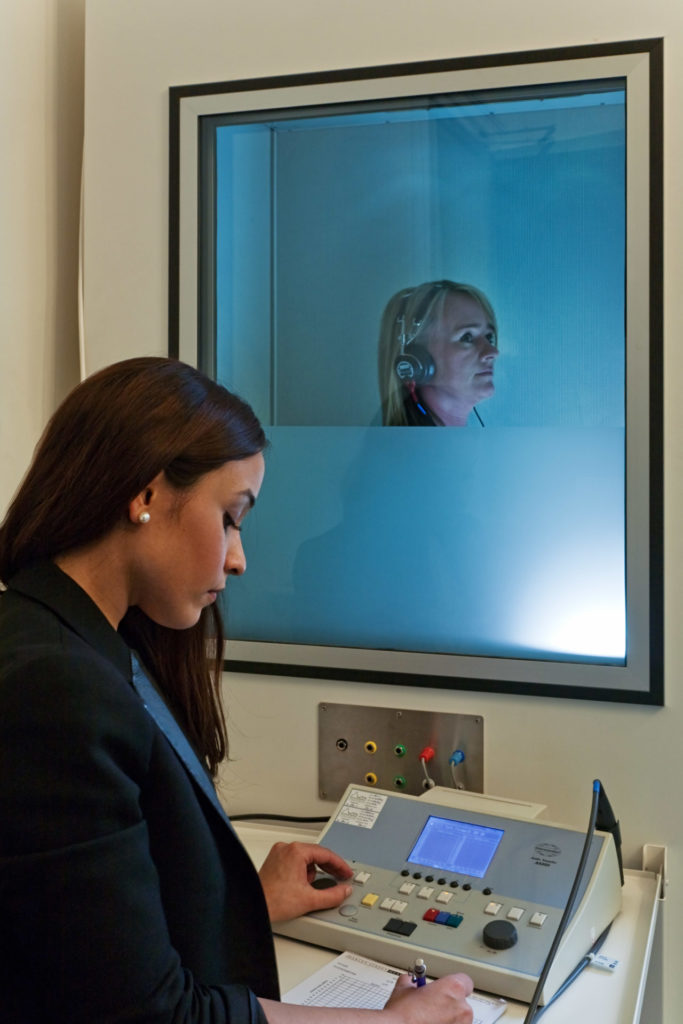What is hearing loss?
Hearing loss is a prevalent condition that affects over 5% of the world’s population, yet its impact on an individual’s quality of life is often underestimated.
Hearing is a crucial sense that we can easily take for granted. It helps us to effectively communicate, work, engage in social activities and generally navigate day-to-day life. When a hearing impairment occurs, all of these can be heavily affected.
At Harley Street Hearing, we recognise the need for education on hearing loss so that we can all be more aware of the implications the condition could have for our loved ones or ourselves. In this blog, we’ll provide a comprehensive overview of hearing loss, discussing its various aspects, from its causes and types to its connection with one’s balance and the brain.
What constitutes hearing loss?
Hearing loss is also known as deafness or hearing impairment, and it occurs when a person’s ability to hear sounds diminishes. It’s important to note that this can happen at varying degrees, and hearing loss can vary greatly from person to person.
The severity of hearing loss is typically categorised into four main types:
- Mild hearing loss (20-40 decibels): Individuals with mild hearing loss may have difficulty hearing quiet sounds and may occasionally be unable to hear softer speech. Noisy environments can pose challenges, but they can typically hear well in quiet, more intimate settings.
- Moderate hearing loss (41-70 decibels): Those with moderate hearing loss can often struggle to hear normal speech, even in relatively quiet situations. Hearing aids may be required to help them communicate effectively.
- Severe hearing loss (71-90 decibels): When hearing loss is categorised as severe, an individual may only be able to hear loud speech or sounds when it is shouted directly into their ears. Without the use of hearing aids, severe hearing loss will be incredibly debilitating.
- Profound hearing loss (90+ decibels): Profound hearing loss leaves individuals unable to hear any sounds without the assistance of cochlear implants or other devices.

A common misconception is that hearing loss is only caused by ageing, but whilst this can be a major contributing factor for many, there are various different causes of hearing loss. These causes can be broadly categorised into two categories:
- Conductive hearing loss: This type of hearing loss occurs through the blockage of the natural movement of sound within the outer ear or middle ear. This can develop at any point in life due to many different factors such as excess wax, ear infections, injury or health conditions.
- Sensorineural hearing loss: This type of hearing loss is caused by damage to the sensitive hair cells inside the inner ear or damage to the auditory nerve. This may happen naturally due to ageing, noise exposure, ototoxic drugs or as a result of injury.
- Mixed hearing loss: If both types (conductive and sensorineural) occur together, the condition is called mixed hearing loss.
Severe vs. mild hearing loss
To better understand the impact of hearing loss on an individual’s daily life, it’s essential to differentiate between severe and mild hearing loss. As mentioned above, hearing loss impacts people differently, and a lot of this comes down to the severity of their condition.
Those suffering from severe hearing loss will notice a far greater impact on the quality of their life, compared to those with mild or moderate hearing loss. Severe hearing loss can lead to a range of daily challenges including communication difficulties, performance at work and mental health issues such as anxiety, depression and loneliness.
In comparison, whilst mild hearing loss still poses its own challenges it may not have such a severe impact. Those with mild hearing loss can typically adapt by employing strategies like using hearing aids and positioning themselves in quieter environments when communicating.
Recognising the difference is crucial when it comes to better understanding an individual’s needs and helping them to communicate. However, without proper management, even mild hearing loss can progress and worsen over time which is why it’s crucial to undergo routine hearing tests to monitor the condition.

How is hearing loss linked to balance?
Hearing loss doesn’t just affect our ability to hear sounds and communicate, it can also have a knock-on effect on other aspects of our lives, such as our balance.
Both hearing loss and balance are interconnected through the vestibular system, which is responsible for our sense of balance and spatial orientation. This is located directly in the inner ear and works by detecting motion and gravitational forces, sending signals to the brain to help us maintain balance.
If our hearing becomes impaired, this can disrupt the signals sent to the brain and in turn affect our sense of balance. Additionally, certain inner ear conditions, like Meniere’s disease, can lead to both hearing loss and vertigo (a type of dizziness) which can have an even greater impact on balance.
The connection between hearing loss and balance overall can affect how well we perceive our surroundings and reduce our spatial awareness, leading to a greater risk of falling or stumbling which can be a major concern, particularly for those with severe hearing loss. Again, this is why it’s so important to book regular hearing tests and seek the most suitable treatment for any type of hearing loss.
Hearing loss and the brain
One of the lesser-known symptoms of hearing loss is that it can have a profound impact on the brain. As the brain is responsible for processing auditory information, when our hearing is compromised the brain is forced to adapt.
This can lead to a series of other issues, such as:
- Increased cognitive load: As those suffering from hearing loss have to exert more energy in an attempt to process speech and sounds, this increased cognitive load can lead to mental fatigue and a reduction in cognitive reserves for other important tasks such as memory. This added stress on the brain can lead to an increased chance of developing dementia.
- Auditory deprivation: This occurs when the brain’s auditory pathways become less active as a result of prolonged hearing loss. Over time, this can lead to a decreased ability to understand speech and sounds even with the use of hearing aids.
- Social isolation: This is a major and concerning symptom of hearing loss which isn’t often realised. However, those suffering from the condition can often find themselves withdrawing from social interactions due to the difficulties communication poses.
How to diagnose and treat hearing loss
As we’ve discussed, hearing loss is a complex and multifaceted condition that extends far beyond the inability to hear. It can affect individuals profoundly in many different ways, and untreated hearing loss can worsen over time, which is why early diagnosis and treatment is crucial.
Whilst there is no cure for hearing loss and the damage is irreversible, the symptoms can be lessened with the use of hearing aids. They can be configured to suit the severity and type of hearing impairment, helping to improve the areas where an individual struggles the most. By reducing the amount of stress on the brain and body, hearing aids can also work to prevent some of the related health concerns and conditions that may arise without treatment.
Booking a hearing test is the first step that should be taken in order to detect hearing loss and devise a suitable treatment plan.
If you are experiencing any balance issues we also offer a comprehensive audio vestibular (balance) diagnostic service at our Balance Centre at 127 Harley Street.
Harley Street Hearing is London’s leading independent audiology clinic, offering private hearing consultations and expert advice from a team of highly qualified clinical audiologists. If you suspect that you or a friend or family member may be experiencing hearing loss, contact us to book an appointment.
Enjoy this article? You might be interested in some of our others:












